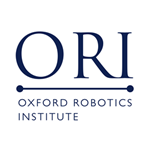Joe joined the institute as a postdoctoral research assistant in the A2I lab in January 2025, working on robot learning and specifically multi-modal world models for robotic manipulation.
He completed his PhD at the Technical University of Darmstadt in Germany, supervised by Prof. Jan Peters. During his doctorate, he focused on statistical methods for robot learning across a broad range of applications, culminating in his thesis "Inference, Models and Priors for Control". His research has been accepted for an oral presentation at the Conference on Robot Learning (CoRL) and a spotlight presentation at the Advances in Neural Information Processing Systems conference (NeurIPS). Joe was also selected as an R:SS Pioneer for robotics research in 2022 and was an intern at Google DeepMind Robotics in 2022-23.
He studied Information & Computer Engineering at the University of Cambridge, where he received his BA and MEng in 2016. His Master’s thesis “Vision-Based Learning for Robotic Grasping”, which investigated the use of convolutional neural networks for real-world grasp prediction, was undertaken at the Bio-Inspired Robotics Lab (BIRL) under the supervision of Prof. Fumiya Iida.
Between his studies, Joe spent two years at CMR Surgical, a medical robotics startup, where he developed the control stack for a novel robot manipulator for laparoscopic surgery. The platform has since performed over 25,000 surgical procedures globally as of 2024. His research interests focus on statistical methods for machine and robot learning, particularly exploring the duality between entropy-regularized optimization and (pseudo-) Bayesian inference for designing inference algorithms and probabilistic models.
He is especially interested in incorporating structural knowledge, such as physical constraints, to enhance uncertainty quantification and learning efficiency.





